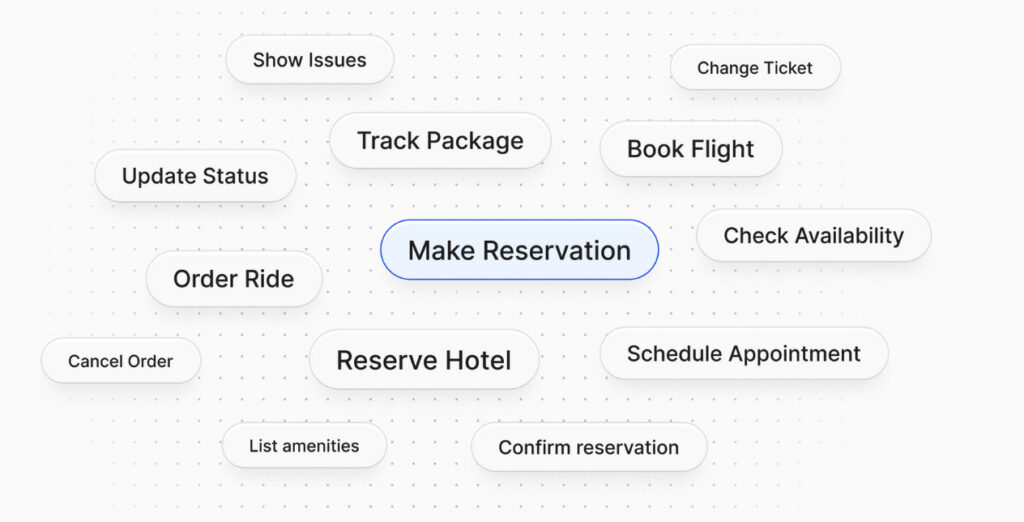Introduction
Being an entrepreneur has always been a plan that became a reality for me. But I always felt limited by my written language, especially in English. I felt that I wasn’t professional enough to think internationally due to my red styles from secondary school in English. My confidence in both Norwegian and English language was not at its peak, which affected my efficiency and productivity.
It was therefore very fitting that Generative AI like ChatGPT became an internet phenomenon around the same time that I finally started to understand what was important to have the ability to invest in my own businesses. And let me tell you, it was a game changer! After just a few months, I saw a huge improvement in my communication. I became more precise and my confidence skyrocketed. Not only that, my productivity also increased significantly.
Implementing AI into my business strategy has helped me in countless ways. From handling customer service through an AI chatbot, to generating leads, AI has given me an advantage I could never have imagined. And we’re still in the starting pit.
Overall, AI and Artificial Intelligence have been an important part of my business journey. They’ve changed the way I run my businesses and I’m excited to see what the future holds.
See also: What is ChatGPT?
The benefits of AI and Artificial Intelligence in your business
Innovative and forward-thinking organizations have long since recognized the importance of implementing AI in their business. Here are just some of the benefits. Every day, a large number of tools are created that make many companies more efficient.
Improved communication and confidence through AI
AI has the power to improve your communication in significant ways. Whether it’s Norwegian or English you’re struggling with, AI can help you become more precise in your language. This, in turn, can increase your confidence and allow you to communicate your ideas more effectively. AI can give you the confidence you need to express yourself clearly and precisely, which can be crucial in the business world. In addition, software that acts as a live translator is already available. Where two parties speak to each other in two different languages without any major delay. Wordly.ai is an example of such a platform.
Increased productivity through AI
Implementing AI in your business can lead to a significant increase in productivity. From automating routine tasks to generating leads, AI can free up time for you and your team to focus on the more strategic aspects of your business. This can result in a more efficient workflow and an increase in productivity.
Examples of how AI can transform your business
One of the most transformative aspects of AI is its ability to handle customer service. By using an AI chatbot, such as Botpress, you can efficiently handle customer inquiries and provide fast and accurate service. This can lead to higher customer satisfaction and loyalty.

AI can also improve your decision-making by leveraging data analytics. By analyzing large amounts of data, AI can provide you with insights and predictions that can help you make more informed and effective decisions.
Overall, AI can be a game-changer for your business. By implementing AI and Artificial Intelligence into your business strategy, you can open the door to countless opportunities and benefits.
Common challenges when implementing AI and Artificial Intelligence
When you start implementing AI and Artificial Intelligence into your business strategy, you may encounter some challenges. Here are two of the most common:
The importance of a solid data strategy
Data is the lifeblood of AI. If you don’t have a well-planned data strategy, your AI systems may lack the vital information they need to function properly. You need to think about how you collect and store data, as well as how you ensure the data is clean, organized and accessible.
Investing in skilled expertise for a good strategy
How AI and Artificial Intelligence can improve productivity and efficiency
There’s no doubt that AI and Artificial Intelligence have the potential to transform your business strategy by improving productivity and efficiency. Let’s look at some examples:
See also: Article on productivity software
Customer service and chatbot as examples
AI chatbots are an exceptional tool for improving customer service. They can handle a variety of customer inquiries simultaneously, freeing up time for your employees to focus on more complex tasks. Other benefits include faster response time, 24/7 availability, and the ability to generate leads.

Use of AI in decision-making and data analysis
How to get started with AI and Artificial Intelligence in your business strategy
Implementing AI and Artificial Intelligence into your business strategy can seem overwhelming, but it doesn’t have to be. Here are two key steps you can take to begin this journey:
The need for a Chief Artificial Officer (CAO)
In the future, many companies will have a Chief Artificial Officer (CAO) on their team. A CAO will be responsible for leading the company’s AI strategy, and will be the bridge between AI technology and business strategy. By having a dedicated head of AI, you can be sure that your AI initiatives are aligned with your company’s overall goals and strategy.
The importance of seeking professional advice for an effective implementation of AI
Implementing AI into your business strategy requires a thorough understanding of the technology and its potential impact on your business. That’s why it’s important to seek professional advice. Advisors can offer valuable insight and guidance in the implementation process and help you avoid common pitfalls. They can also help you customize AI solutions to your specific business needs, ensuring you get the most out of your investment.
Closure
My journey with AI and Artificial Intelligence has been both challenging and rewarding. I’ve seen how these technologies can transform a business strategy, improve productivity, and even change company culture. And it has developed my learning and confidence in record time.
AI and Artificial Intelligence are no longer technologies of the future – they are here and now. They are becoming increasingly accessible and affordable, making them an essential tool for all types of businesses, regardless of size or sector.
While I look forward to the future, I’m convinced that AI and Artificial Intelligence will play an even bigger role in business strategies. I believe we will see an increase in the use of AI in everything from decision-making and data analysis to customer service and product development.
For me personally, I will continue to explore and utilize the opportunities that AI and Artificial Intelligence offer. I’m excited to see how these technologies will continue to shape and transform the business landscape, and I’m ready to be part of that journey.






